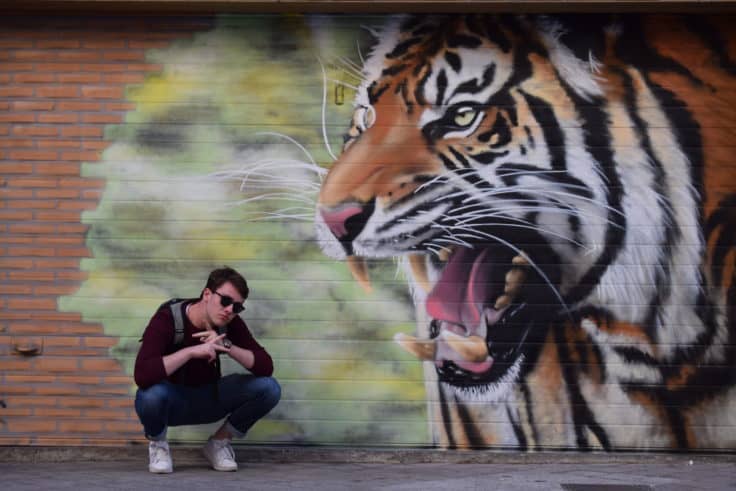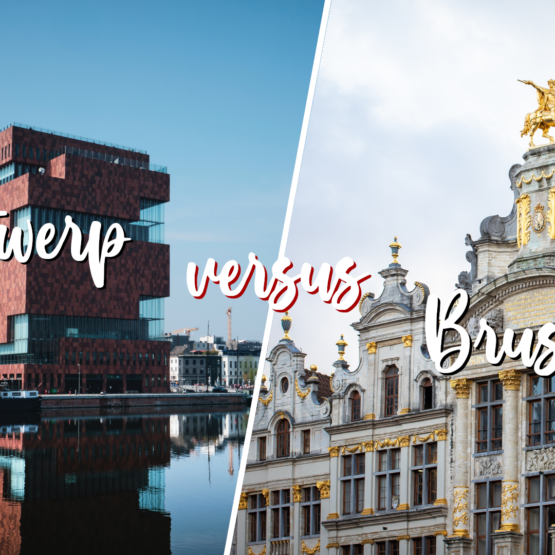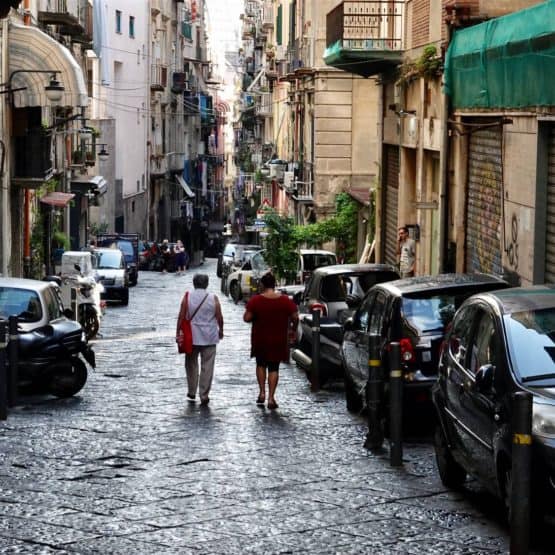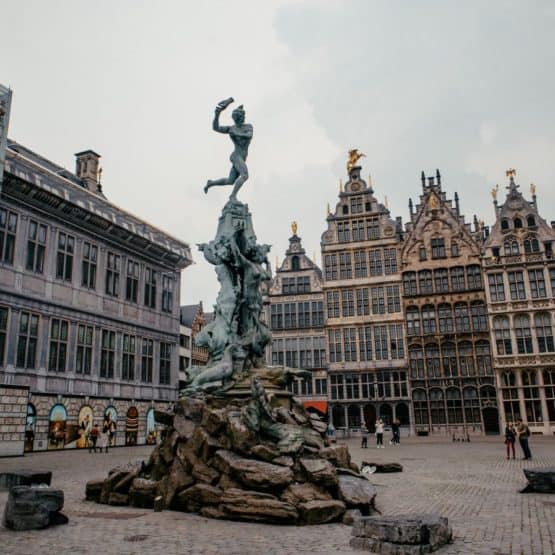This is my first interview in a new series of blog posts called Free Spirits Interviews. In these blog posts I interview insiders of the nomad and/or expat business. I can’t wait to share them all with you and give you some insight into the people I interviewed. In this first interview, I ask Lauren from Never Ending Footsteps some questions about life as a nomad and settling down after years of travelling.
I sincerely hope you enjoy these posts as much as I do.
Without any further ado, here’s our first guest!

Lauren Juliff was born in London, England, and has spent the past seven years travelling the world and venturing outside of her minuscule comfort zone. She was once afraid of buses, small talk, rice, and most anything you can think of. But through travel, she has overcome anxieties large and small in a quest to prove to a former Lauren she can do anything she sets her mind to. Lauren runs the travel blog Never Ending Footsteps, where she writes about her frequent misadventures. She is also the author of the travel memoir How Not to Travel the World.
Hey Lauren! Can you introduce yourself to us and tell us the story of how you went from being a nomad to living in Portugal to moving back home to the UK?
Hi! I’m Lauren and I’ve been travelling around the world for much of the past seven years.
At age 23, after five years of saving, I quit my job and bought a one-way ticket out of the U.K. I’d always dreamed of travel, and decided to do so after graduating college. I figured that it would be the one time in my life when I’d likely be free of ties. I planned to travel for a year or two — essentially until the point when my savings ran out.
My travel blog, Never Ending Footsteps, was a way to keep friends updated on my adventures around the world. I never expected to one day turn it into a business. After six months of travel, though, I was unexpectedly making enough money from it to travel indefinitely in cheaper regions of the world. That’s exactly what I decided to do. I met my boyfriend, Dave, through my travel blog and for the next five years, we travelled the world together.
We decided to stop because continuous travel was no longer fulfilling for us. We were sick, exhausted, overweight, and fed up, craving a home base to return to between trips. Portugal sounded like a good place to live and we had friends there, so we signed a lease on an apartment within a month of first stepping foot in Lisbon.
For the next two years, I merged expat life with travel, spending six months of each year living in Lisbon and six months travelling. This felt like the perfect balance for me, and just having an office at home was enough for me to triple my travel blogging income. I had friends, I had a more settled life, and I felt healthier than ever. I was still exploring the world, but I had a base to return to between trips, which helped keep me sane.
Eventually, I decided a move to the U.K. was on the cards. I didn’t feel as though I belonged in Portugal, struggled with the language and cultural barrier, and craved an easier life. I moved to Bristol — a brand new city to me, as I grew up in London — six months ago, and so far, it feels like the best decision I’ve ever made.
Why did you choose to settle down in Portugal after spending years on the road as a nomad?
After five years, full-time travel began to have more downsides than up.
A life of continuous travel is also a life of continuous goodbyes. I was meeting so many wonderful people on the road, but having to say goodbye several days later when we each moved on to our next destination. That was disheartening to have to go through. Not only that, but it also meant that I had a shallow relationship with everyone I met. After five years, I realised I had a ton of acquaintances spread out across the world, but nobody I would consider a best friend.
I also found full-time travel to be unhealthy for me. It’s rare to have access to a kitchen when you travel. That means eating out for three meals a day for five years straight. Food poisoning brought me down regularly, and I was taking an average of four courses of antibiotics a year. The lack of stability combined with little exercise and a poor diet resulted in my anxiety disorder returning and I began to have panic attacks.
I discovered that you can have too much of a good thing. The more I travelled, the more it would take to impress me. Waterfalls used to amaze me, but once I had seen 60 of them? It would take a hell of an impressive one to leave me in awe.
Finally, I found it tough to have any hobbies. I wanted to start weightlifting. to learn how to knit, to try rock climbing. It was near-impossible to consistently pursue a hobby that wasn’t travel-focused. I travelled, I planned travel, I wrote about travel, I read about travel, I talked about travel, I hung out with other travellers. I was such a one-dimensional human.
So, the decision was definitely made: we needed to find a base.
We decided to move to Portugal because we were desperate to stop moving and that was the next destination on our list.
We didn’t put any real thought into it.
My boyfriend and I both have British passports, so living somewhere in Europe made a lot of sense. Besides, we had some digital nomad friends already living there. Portugal is inexpensive, sunny, and with a thriving start-up scene. It made a lot of sense to live there.
We turned up in Lisbon having never been there before, and decided to live there two days later.
We were so desperate to stop travelling that I would have moved anywhere at that point, to be honest.

Why did you move back home to the UK? Was Portugal not a good fit?
Pretty much.
After two years in Portugal, Dave and I realised that it didn’t feel like a long-term home for us. As a consequence, we started to consider new countries.
Portugal is wonderful, but I’m not Portuguese and I’ll never be Portuguese. I love immersing myself in unfamiliar cultures when I travel, but that’s the opposite of what I want from a home base. Also, trying to deal with bureaucracy in Portugal was horrendous. I just didn’t think expat life was something that worked for me.
Every time I returned home, it felt like home in a way that nowhere else in the world did. I felt like I belonged, and I wanted that feeling every day. I didn’t think I’d ever feel that way in Lisbon.
How much did Dave influence your decision to settle down?
It was a mutual decision and fortunately, we were both equally ready to find a base. Dave also struggled with many of the points I mentioned above. He was feeling jaded by travel, he wanted to pick up other interests, he was fed up with not having any real friends, and the unhealthy lifestyle had left him 20 kgs overweight and feeling terrible.
The fact that we both wanted to stop travelling made making the decision a lot easier than it might have otherwise been.

How does it feel to return home after years of travelling?
It feels amazing to return home, and I’m so happy. It really doesn’t feel all that different to my expat life, or even my full-time traveller life, to be honest.
Because I still work online and in travel, I still have just as much freedom as I did when I travelled as a digital nomad, and I still take full advantage of it. It’s not as though I’m not grounded and unable to leave. If I want to head to India next week, I can buy a plane ticket and do exactly that. I still travel for four months of the year.
Additionally, I chose to move to Bristol in the U.K., which is a brand new city for me. Even though I’m living in the country I was born in, I know little about Bristol, and I’m getting to discover it as a traveller as well as a resident.
When someone says “travelling the world changes you”, should I take their words with a grain of salt or should I genuinely believe them? Why?
I’d take it with a grain of salt, simply because I don’t believe anything can change everyone who does it. And I’m saying that as someone who experienced an enormous amount of transformation through travel! Some people travel and hate it; some people travel and have no desire to learn or change; and some people travel and come out a worse person because of it.
I think as well that by having that mindset, you’re saying that only people who are rich enough and privileged enough and able-bodied enough to travel have access to that transformation.
Are there any things in England that seem strange to you, compared to how things are done abroad?
I think the ease with which you can carry out basic day-to-day tasks feels strange. Drinkable tap water and consistent access to hot water showers are both things I’ve yet to grow tired of. Being able to have a conversation with anybody I run into makes life so much easier, especially when it’s anything to do with the government. That was a nightmare in Portugal!
The technological advances have been shocking, too — contactless payments, the fact that nobody uses cash anymore, online grocery deliveries. I feel like I’m living in the future, because so many of the countries I travel in are cash-only. And sure, there were things like online delivery in Portugal. But there was always a language barrier, so everything took 10 times longer.
Living as an expat or travelling full-time comes with a certain baseline level of cognitive load. You have to communicate with people who speak a different language, understand the culture, navigate an unfamiliar city, guess at what food you’re eating. By eliminating all of that, I feel less exhausted. It almost makes me blind to the downsides of life in England. Everything is so easy that I simply can’t find anything to complain about!
What is the most important lesson you’ve learned from travelling?
The importance of leaving your comfort zone. When you travel, every day on the road presents challenges. And since there’s nobody else to fall back on, you have to leave your comfort zone in order to have a successful trip. And it’s leaving your comfort zone that helps you conquer your fears and prove you’re more capable than you might have otherwise believed.
Anxiety used to prevent me from doing anything that scared me, but travel forced me to do everything because I had no other option. Trying new things on a daily basis transformed my life, as I slowly realised the things that had made me nervous weren’t so intimidating after all. I learned that I was more than capable of doing them, and surviving a situation if my worst case scenario actually happened. Within a few week of starting to travel, my panic attacks faded away. I fell in love with trying new foods, I gained confidence and social skills, and a love of challenging myself to do the things that make me nervous.

What was the first meal you had when you came back home to England?
I honestly can’t remember!
When I was a nomad, I usually spent two months catching up with family and friends in the U.K. every year. That way, it wasn’t like I had been away from England seven years straight and had missed so much. I regularly spent time back home, so hadn’t missed any particular food or meals.
Did your anxiety play any part in deciding to stop being a nomad?
Sort of.
I started to have panic attacks when travel started making me unwell. My anxiety was more of a warning sign that I needed to stop, rather than the reason behind me stopping. If that makes sense!
In the six months before I moved to Portugal, I suffered panic attacks every single day on the road. And they’d only stop when I thought about finding a home. That was a pretty major indication that I needed to make a change.
Are there times when you miss being a nomad as opposed to living as an expat or living back in England?
Very rarely.
I think a big part of that comes from choosing to continue to travel since moving to the U.K. My life isn’t all that different, as I’ve designed it to retain the freedom and spontaneity I loved while I was a nomad. If I want to fly to Brazil tomorrow, I can still do exactly that.
I actually took a six-month-long trip earlier this year and honestly? I didn’t love it. By the time I was about two months in, I was tired, unwell, and missing having a kitchen and office. I struggled to work on my travel blogging business, I missed having a community around me, and I found it tremendously difficult to maintain a healthy lifestyle.
That trip showed me that the life of a nomad is no longer something that would make me happy. When I have a base, I can still experience the positives to life as a nomad (travel! the freedom!), but I get to avoid all of the downsides that drove me crazy and made me sick.

Do you still travel a lot? What are your next travel plans?
Yes! I still love to travel, and now that I’m based in the U.K., I aim to spend four months of every year out of the country and exploring new destinations.
My next trip is in January. I’m going to be spending 10 days in India, 10 days island-hopping in Thailand, and then a few days in Qatar. India and Qatar are going to be brand new countries for me, and I’m excited to finally check them out!
Again, I’d like to thank Lauren very much for answering all of my questions and for allowing me to get a behind-the-scenes peak at what life as a nomad is like – the positives AND the negatives.
You can follow Lauren and her Never Ending Footsteps, Facebook, Instagram, Twitter and YouTube.
PIN IT!










Daniela
December 8, 2018 at 1:52 amGreat first interview. Looking forward to the next ones. I can totally relate to what Lauren says about wanting to have a home base after so many years of constant travel. Happened to me, too. I never had panic attacks but I remember feeling anxious and being nervous because I was so often worrying about the need to find accommodation with good internet and being an introvert, I don’t easily connect with new people.
Sander
December 8, 2018 at 6:51 pmI’ve never travelled long term but I definitely felt the same way when I was studying in Spain for four months. It’s good to know you have something to fall back on.
Crystal
December 8, 2018 at 5:52 pmLoved the interview! I have been following Laurens travels when I first found her in 2009. I find her stories super inspiring! I do like how transparent she is about the downfalls of travels and how she now feels her life is balanced with having a home base. Such a great first interview, I look forward to future interviews! You are great at asking questions, Sander!
Sander
December 8, 2018 at 9:07 pmLauren’s story really is an interesting one. The way she talks about her struggles on the road is admirable and it’s something we should all strive towards. Thank you for your kind words, Crystal. 🙂
Sheree
December 31, 2018 at 9:19 pmAwesome interview. Lauren is one of my favourite bloggers, I love her brutal honesty about the realities of travel. Well done on putting together such a great article. Can’t wait to read more! 🙂
Sander
January 3, 2019 at 2:15 pmThank you for your nice words, Sheree! More travel interviews are coming in the following weeks, so be sure to tune in from time to time. 😉